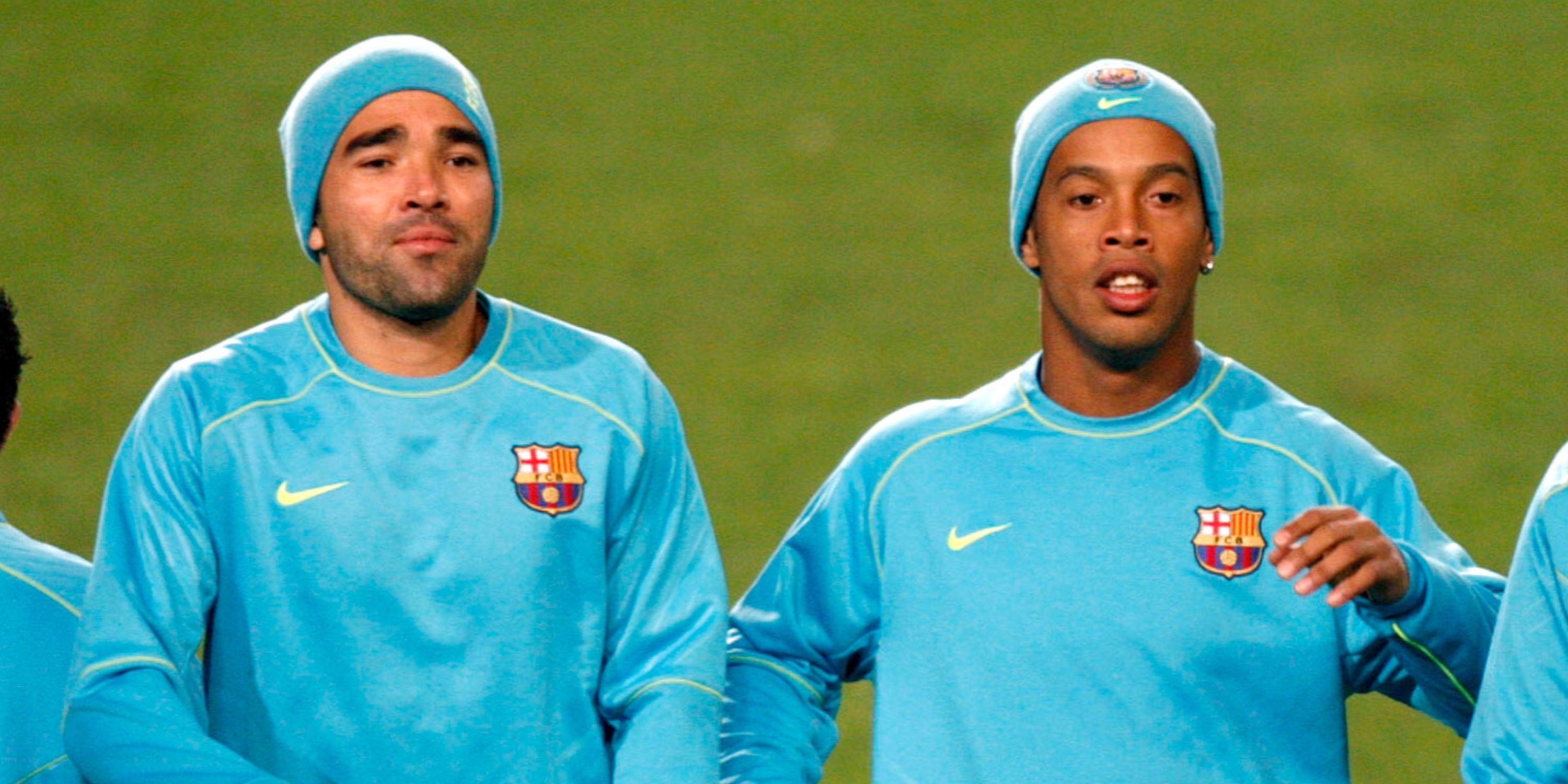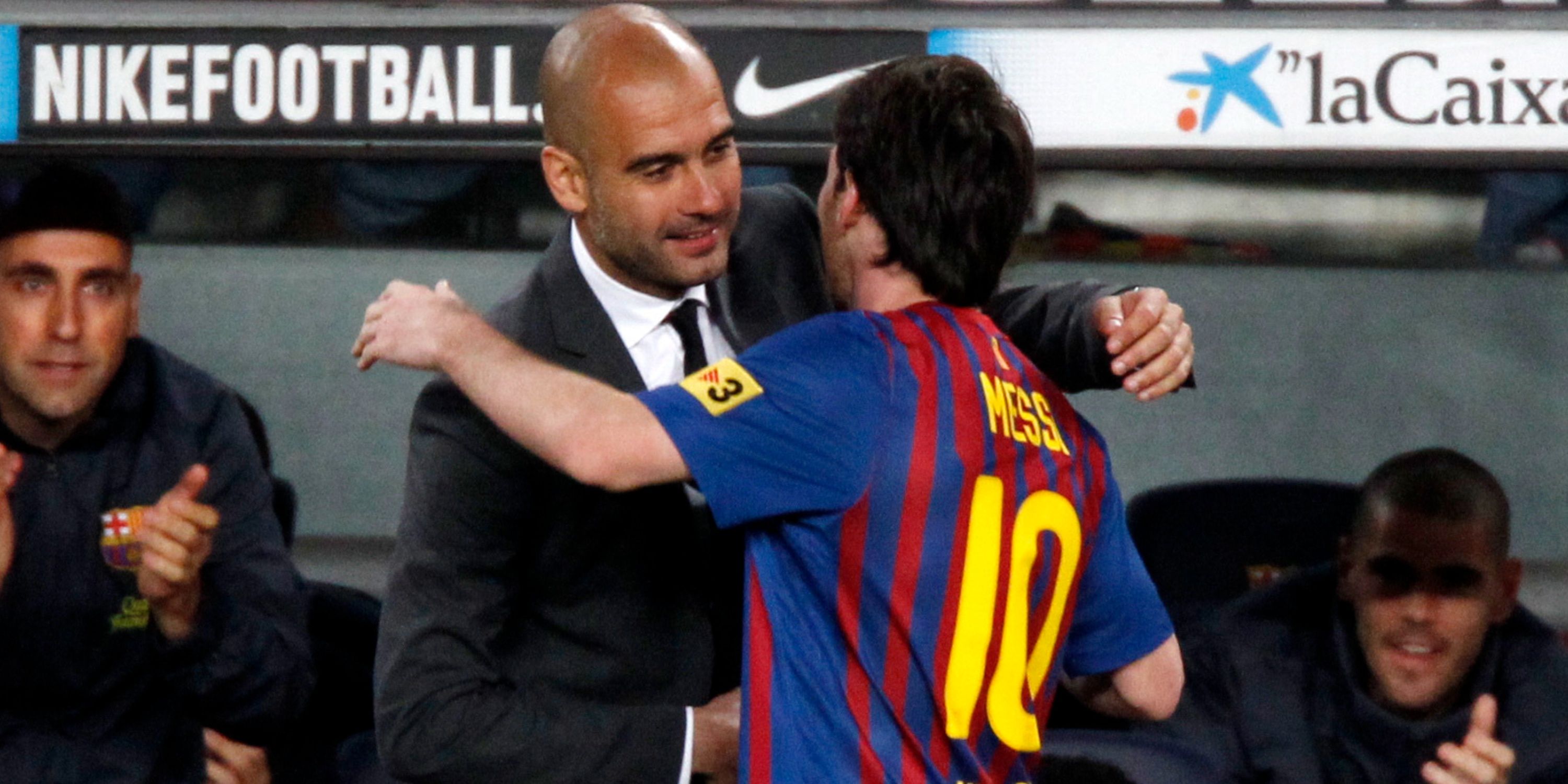- Ronaldinho and Deco once turned up to Barcelona training drunk, according to Alexander Hleb.
- They were sold by Pep Guardiola to protect rising star Lionel Messi from unwanted distractions.
- Messi’s impact on Barcelona grew post-Ronaldinho and Deco, as he developed into football’s greatest player.
Barcelona and Lionel Messi is a supreme tale of success but one that was once potentially put at risk, in the eyes of Pep Guardiola.
Having an emerging world-beater ushered in and nursed from the depths of one’s academy is a huge prospect for any football institution. For Futbol Club Barcelona, this was no different in the mid-to-late 2000s, as their Argentinian adopted son from Newell’s Old Boys effectively helped change the way the Catalonian club approached its professionals.
As Messi went from La Masia and began to show glimpses that he would surpass the upper echelons of the first team, party-centric big hitters were sacrificed to a gift simply greater than theirs as the football landscape shifted. Former Barcelona midfielder Alexander Hleb once explained that both Ronaldinho and Deco were two casualties of this train of thought, so as not to “bring down” or corrupt the starlet, saying:
“Ronaldinho and Deco came to training drunk. That’s why Ronaldinho and Deco were sold in 2008. Because they (Barcelona) were afraid that they would bring down Lionel Messi.”
Ronaldinho and Deco Sold After Training Drunk
Barcelona were “afraid” for Messi
Speaking with Belarussian outlet Voka TV in 2019, Hleb, who made 36 appearances in a sporadic four-year spell in Catalonia, recalled the situation, noting how the club were “afraid” about the negative impact Ronaldinho and Deco might have on the young and potentially impressionable starlet.
Of course, the two legends did more than their fair share for Barcelona. Deco appeared on 161 occasions, scoring 20 and registering an impressive 45 assists in that time. The ethereal Ronaldinho scored 94 goals and provided 71 assists in 207 games. Considering the plethora of trophies the dynamic duo helped Barcelona win, including two La Liga titles as well an iconic fightback Champions League crown in 2006 against Arsenal – it is an even braver decision to cast that aside in light of a new messiah.
However, when one reads of just how the two Brazilian-born players developed their friendship (Deco represented Portugal after naturalising while playing for Porto), it really points to the landscape of the game around them at the time. The two got on immediately after arriving at the club within a year of each other in 2003 and ’04. They even lived with each other and in a time before the new wave of club nutrition and science, had yet to fully take flight – the two partied well to acclimatise. Deco said of his living arrangements with “O Bruxo” (“The Wizard”):
“We met in Barcelona and I connected with him immediately, the moments I lived with him are difficult to compare to anything. He was magical.”
However, with the newly appointed Pep Guardiola overlooking Messi’s development – having two senior pros saunter into training while still drunk from the night before was simply not on. The proud Catalan and former player under Johan Cruyff had the club’s best interests at heart. Messi’s ability was already present the season before Pep took, with the Argentine bagging 17 goals in 36 games in 2006-07, the manager was asking just how far could he truly go without distraction.
Pep’s Assertiveness Helped Messi Thrive
Argentine took on more responsibility at Barcelona
Guardiola became manager of the first team at the end of the 2007-08 season, and he immediately told reporters that Deco, Ronaldinho and Samuel Eto’o were not in his plans. Although Eto’o ultimately ended up staying for one more season, and scored the opening goal in the Champions League final win over Manchester United, Messi looked to become more of a focal point.
In the first season post-Ronaldinho and Deco, the slender, agile dribbler took on more responsibility for goal-scoring and creation, with 23 goals and 13 assists in just 31 games. This was eight more direct goal involvements in just three more games compared to 2007-08, and now it was time to truly push on as Barcelona looked to battle Real Madrid for dominance in an intriguing new era of Spanish football.
| Barcelona Statistics in All-Competitions | |||||
|---|---|---|---|---|---|
| Player | Games | Goals | Assists | Trophies | Individual Accolades |
| Ronaldinho | 207 | 94 | 71 | La Liga x2, Supercopa de Espana x2, UEFA Champions League x1 | 25 |
| Deco | 161 | 20 | 45 | La Liga x2 Supercopa de Espana x2 UEFA Champions League x1 | 4 |
| Messi | 520 | 474 | 216 | La Liga x10 Copa del Rey x7 UEFA Champions League x4 Supercopa de Espana x7 UEFA Super Cup x3 FIFA Club World Cup x3 | 82 |
While the amount of moments of sheer magic and blissful goals which followed are just too many to describe, the table above outlines Messi’s impact on Barcelona as the torch was passed from Ronaldinho and Deco to the soon-to-be coveted Argentinian. It’s a testament to Pep’s faith and his player’s ability too, just how far Messi flew ahead with skill and longevity, developing into the greatest player of all time.
Stats via Transfermarkt.

